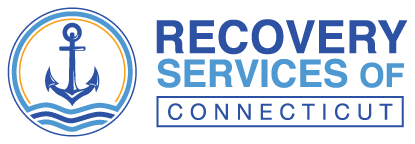Substance addiction is a pervasive issue that affects individuals from all walks of life. It’s a complex problem, but overcoming it is achievable with the proper support and treatment. One such effective treatment option is the Intensive Outpatient Program (IOP). This article aims to provide a detailed understanding of IOP for drug and alcohol rehab, its benefits, and why it might be the right choice for you or your loved one.
What is an Intensive Outpatient Program?
An Intensive Outpatient Program (IOP) is a treatment program that provides a high level of care without requiring patients to stay at the facility. IOPs are designed to offer comprehensive therapy and support while allowing individuals to continue with their daily activities, such as work, school, or family responsibilities.
IOPs typically involve multiple sessions per week, each lasting several hours. These sessions may include individual therapy, group therapy, family therapy, educational sessions, and skill-building workshops.
When is an Intensive Outpatient Program Needed?
An IOP is often recommended for individuals who have completed a residential or day treatment program and are ready to transition to a less intensive level of care. It can also be a good fit for those who may not require round-the-clock supervision but still need a structured and supportive treatment environment.
Who is an Intensive Outpatient Program For?
IOPs are suitable for individuals struggling with drug and alcohol addiction who have a stable living environment and a supportive network. It’s particularly beneficial for those who are highly motivated to recover and can manage their symptoms with less supervision.
How Can an Intensive Outpatient Program Help?
IOPs offer a comprehensive approach to recovery, addressing the physical, psychological, and social aspects of addiction. Here are some ways an IOP can help:
- Therapy and Counseling: IOPs provide regular therapy sessions to help individuals understand the root causes of their addiction and develop coping strategies.
- Education: These programs educate individuals about addiction and recovery, helping them understand their condition and the steps needed for recovery.
- Peer Support: Group therapy and activities allow individuals to connect with others going through similar experiences, fostering a sense of community and mutual support.
- Skill Building: IOPs often include sessions on life skills, stress management, and relapse prevention, equipping individuals with the tools they need to maintain sobriety in the long term.
Why Should Someone Seek an Intensive Outpatient Program?
IOPs balance intensive treatment and the freedom to maintain daily responsibilities. They offer the structure and support needed for recovery while allowing individuals to apply what they’ve learned in real-life situations. This balance can make the transition to a sober lifestyle smoother and more sustainable.
How Long is an Intensive Outpatient Program?
The length of an IOP can vary depending on the individual’s needs and progress. Typically, these programs can last from a few weeks to several months. The frequency of sessions can also vary, with most programs offering treatment services three to five days a week.
The Role of Family in Recovery
Family involvement can play a crucial role in an individual’s recovery process. Many IOPs include family therapy sessions and family education programs. These sessions aim to educate family members about addiction and recovery, improve communication within the family, and provide strategies to support their loved one’s recovery journey.
Conclusion
Intensive Outpatient Programs for drug and alcohol rehab offer a flexible yet structured approach to recovery. They provide the necessary support and treatment while allowing individuals to continue their daily lives. If you or a loved one is struggling with addiction, consider an IOP as a step toward recovery. Remember, seeking help is a sign of strength, and with the right support, recovery is within reach.
Remember, seeking help is a sign of strength, and with the proper support, recovery is within reach. Consulting with a healthcare professional is crucial to understanding the best treatment options for your unique situation. Recovery is a personal journey; what works best depends on the individual’s needs, circumstances, and goals. Contact us, and we will happily discuss the best options for you.



